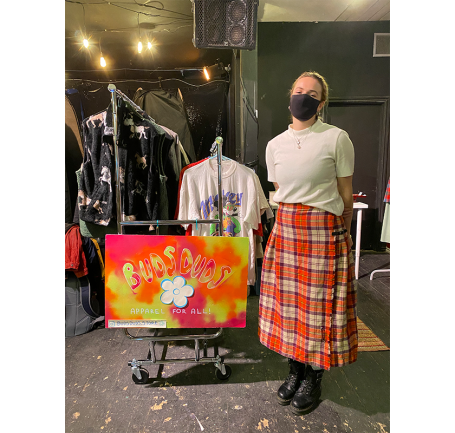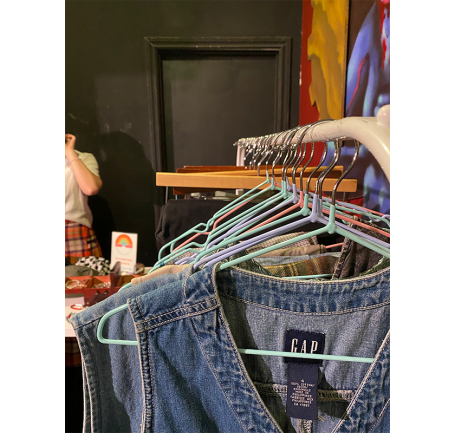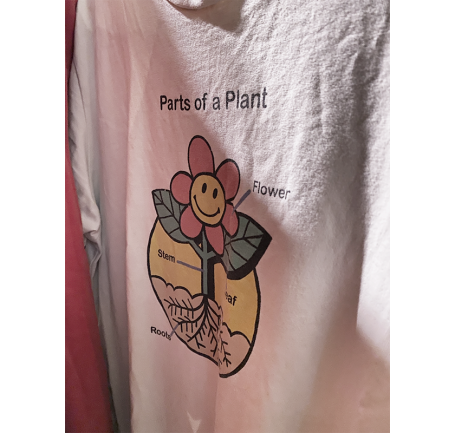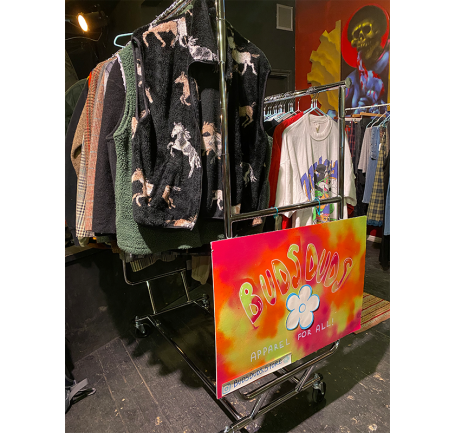Sustainable shopping grows in an attempt to slow down fast fashion
By Nick Petlock on December 15, 2021
With fast fashion becoming more of a prominent problem in the eyes of environmental enthusiasts, alternative ways of shopping, like thrifting, have become a way to consume material more sustainably.
Fast fashion is responsible for 20 per cent of the world’s use of wastewater and has the second-largest carbon footprint worldwide.

Buds Duds Apparel, a local Edmonton thrifting shop, prides itself on promoting a healthy, environmentally conscious business. Not only that, but they stand to be a shop that supports the fact that clothing has no gender.
Sister duo Olivia and Amanda Procter run the company. The two found themselves gravitating towards the idea of thrifting for all shapes and sizes at the beginning of the pandemic. Now, they continue to grow their business and have had to add extra staffing to their roster because of the big platform they’ve made over the past 19 months. They are getting customers from all walks of life.
“We really want to curate and facilitate a welcoming community of sustainable, local, community-driven shopping experience,” said Olivia.
After years of second-hand shopping being stigmatized and seen as something only lower-class citizens do, Buds Duds hopes to bring thrifting to a place that can be seen as positive in the eyes of the public.

“Not necessarily thrifting, but second-hand is the way to go. Facebook marketplace is a great tool, Poshmark is a great tool, your Instagram story is a great tool,” said Olivia.
“It’s just normalizing second-hand as an option more than anything.”
Thrifters also find that it accommodates their budget more. Instead of spending hundreds of dollars on mainstream attire, they adopt second-hand clothing that has a little bit more ‘personality’ to it.
“I thrift because it’s affordable. On top of that, I’m not a big believer in fast fashion, and you get a lot of good junk that a lot of other people threw away,” said Almalexia, an avid thrifter.
“I think it makes clothes more accessible to people at lower levels of income. It also helps people who may not be fit, by a personal choice or by ‘an act of god,’ to not be able to work the nine to five kind of thing.”
For those looking to support a greener future, thrifting isn’t the only option to assist this. Researching stores is a big stepping stone for ethical shopping. Things like finding clothes made with care and durability are a good start. Purchasing clothing that lasts longer than a few washes helps prevent a quick turnaround of material in landfills.

“When you’re shopping, it’s more so just sustaining what you have, making it last for [a long time]. Whether you repurpose it, whether you reuse it, I think that’s a really big thing that everyone can do,” said Olivia.
Check out Buds Duds on their website and Instagram page.


